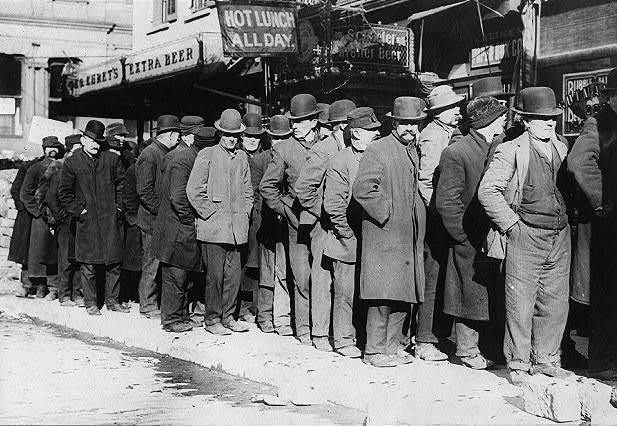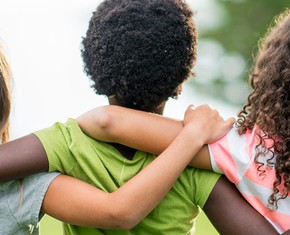The views expressed in our content reflect individual perspectives and do not represent the authoritative views of the Baha'i Faith.
All of the world’s great Faiths emphasize the spiritual attributes of humility, compassion and kindness—and that leads us to the fourth reason why spiritual and material progress need to parallel each other:
4. An excess of wealth and high status can diminish a person’s sense of empathy.
[Read the first reason why Spiritual and Material Progress Must Go Together]
During his journeys through Europe and North America, Abdu’l-Baha came face-to-face with the enormous poverty produced in the shadow of industrialization. In one story, after seeing the plight of the poor around him in London, he spoke of the role that compassion would have in reducing inequality:
When He reached the Occident… Abdu’l-Baha faced a condition which troubled Him greatly, because it was beyond His power to assuage the misery He saw constantly about Him. Housed luxuriously at Cadogan Gardens, London, He knew that within a stone’s throw of Him were people who had never had enough to eat—and in New York there was exactly the same situation. These things made Him exceedingly sad, and He said: “The time will come in the near future when humanity will become so much more sensitive than at present that the man of great wealth will not enjoy his luxury, in comparison with the deplorable poverty about him. He will be forced, for his own happiness, to expend his wealth to procure better conditions for the community in which he lives. – Annamarie Honnold. Vignettes from the Life of Abdu’l-Baha, p. 67.
Unfortunately, we seem very far away today from that vision of a more equitable future. Part of this may have to do with the psychological effect of wealth and high status.
In recent years, a body of scientific studies has emerged that suggests that money and power can stifle a person’s sense of empathy, as well as reduce inhibitions against lying and cheating. I encourage you to follow the link above and read about the research for yourself. This diminished sense of empathy influences interpersonal relationships—but even more importantly, those most affected often wield the most control over business, government, and other major institutions of society. This research adds a psychological dimension to explanations of rising extremes between wealth and poverty and the brutality of autocratic rulers.
Of course, inequality isn’t just about the emotions of individuals. If a society has built-in structural inequality, the normal functioning of the economy automatically biases itself toward the wealthy and well-connected. And if individuals with an “empathy deficit” dominate the affairs of major institutions of society, they aren’t likely to give up their material advantages and permit changes that can lead to a more equitable society.
We can educate children in a manner that emphasizes their moral development as one way of responding to this dilemma. If we bring up and train children to value their natural altruism and affection for others, they will increasingly conduct their affairs with more fairness, generosity, and justice. Abdu’l-Baha often highlighted the importance of this kind of moral education. In one instance, after stating that children should “be constantly encouraged and made eager to gain all the summits of human accomplishment,” he warns that this should be tempered with efforts to improve their character:
Training in morals and good conduct is far more important than book learning. A child that is cleanly, agreeable, of good character, well-behaved—even though he be ignorant—is preferable to a child that is rude, unwashed, ill-natured, and yet becoming deeply versed in all the sciences and arts. The reason for this is that the child who conducts himself well, even though he be ignorant, is of benefit to others, while an ill-natured, ill-behaved child is corrupted and harmful to others, even though he be learned. If, however, the child be trained to be both learned and good, the result is light upon light. – Selections from the Writings of Abdu’l-Baha, pp. 135-136.
In the majority of schools today, we tend to discuss the question of how students will one day apply their knowledge mainly with regard to future earnings or national economic priorities. But the moral and spiritual posture a person develops in his or her youth can have a decisive influence on whether he or she uses the skills they learn to directly improve society or to create messes that other people will have to clean up. When the latter occurs, education can actually function as a net drain on the well-being of society. If we raise and educate altruistic children instead, with each individual working toward the common good, every person in that society will benefit.

















Comments
Sign in or create an account
Continue with Googleor